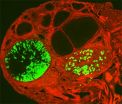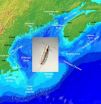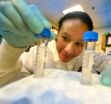(Press-News.org) How would you rate your own physical fitness? Is it good, satisfactory or maybe even poor? Surprisingly, your answer may reveal your future risk of getting dementia.
A recent collaborative study from Finland, involving the follow-up of 3,559 adults for 30 years, has found that a simple question about self-rated physical fitness in midlife may reveal individuals who are at an increased risk of developing dementia. Those who reported poor self-rated physical fitness in midlife, at the mean age of 50 years, were four times more likely to get dementia during the next three decades compared to those with good self-rated physical fitness.
"Previous research has shown that self-rated health is a strong indicator of adverse health events. This is the first large population-based study investigating associations between self-rated physical fitness during the three decades from midlife to later life and dementia risk," says Postdoctoral Researcher, Dr Jenni Kulmala from the Gerontology Research Center at the University of Jyväskylä, Finland.
The association between poor self-rated physical fitness and dementia was most pronounced among noncarriers of the apolipoprotein E ε4 allele, that is, people who did not have a strong genetic susceptibility for dementia. A strong association was also observed among people with chronic diseases.
"Chronic conditions independently increase the dementia risk. Furthermore, if a person additionally feels that his or her physical fitness is poor, the risk is even higher. In terms of dementia prevention, maintaining good physical fitness seems to be especially important for people with chronic diseases," Kulmala says.
Poor self-rated fitness is known to be affected by lifestyle factors such as physical inactivity, poor mental wellbeing, lack of social connections, lower education, high body mass index and smoking. Perceived poor physical fitness therefore integrates several unfavourable aspects of lifestyle that have all been previously linked to increased dementia risk.
"The perception of poor physical fitness is most likely affected by different factors for different people. Therefore, I would encourage those who rate their fitness as poor to think about the factors behind this perception. Increasing physical and social activity, making better dietary choices or quitting smoking, for example, could change the rating into more positive. Individual choices that make you feel physically better may substantially decrease your future risk of developing dementia," Kulmala says.
INFORMATION:
The participants in this study came from the Cardiovascular Risk Factors, Aging and Incidence of Dementia (CAIDE) study, which is an ongoing joint effort of the Department of Neurology at the University of Eastern Finland, Kuopio; the National Institute of Health and Welfare, Helsinki, Finland; and the Aging Research Center of Karolinska Institute, Stockholm, Sweden. The aim of the CAIDE study is to investigate the connection between social, lifestyle and cardiovascular risk factors and cognition and dementia. The Academy of Finland has funded the research through Jenni Kulmala's project.
Full bibliographic information
Kulmala J, Solomon A, Kåreholt I, Ngandu T, Rantanen T, Soininen H, Laatikainen T, Tuomilehto J, Kivipelto M.: Association between mid- to late life physical fitness and dementia: evidence from the CAIDE study.
Journal of Internal Medicine 2014. Jan 20. doi: 10.1111/joim.12202.
http://onlinelibrary.wiley.com/doi/10.1111/joim.12202/abstract
More information: Dr Jenni Kulmala
the Gerontology Research Center
University of Jyväskylä
Finland
email: jenni.kulmala@jyu.fi
tel. +358 40 805 3568
Self-rated physical fitness in midlife an indicator of dementia risk
2014-02-26
ELSE PRESS RELEASES FROM THIS DATE:
Different eggs in adolescent girls and adult women
2014-02-26
Are the eggs produced by adolescent girls the same as the ones produced by adult women? A recent study published in Human Molecular Genetics by Professor Kui Liu from the University of Gothenburg in Sweden shows compelling evidence that there are two completely distinct types of eggs in the mammalian ovary – "the first wave" and "the adult wave".
Professor Liu's team used two genetically modified mouse models to show that the first wave of eggs, which starts immediately after birth, contributes to the onset of puberty and provides fertilizable eggs into the transition ...
Hormone therapy linked to better survival after lung cancer diagnosis in women
2014-02-26
DENVER – Survival among people with lung cancer has been better for women than men, and the findings of a recent study indicate that female hormones may be a factor in this difference. The combination of estrogen plus progesterone and the use of long-term hormone therapy were associated with the most significant improvements in survival.
The study was designed to explore the influence of several reproductive and hormonal factors on overall survival of women with non-small cell lung cancer (NSCLC). After adjusting for stage of disease at diagnosis, treatment type (surgery ...
Don't throw out old, sprouting garlic -- it has heart-healthy antioxidants
2014-02-26
"Sprouted" garlic — old garlic bulbs with bright green shoots emerging from the cloves — is considered to be past its prime and usually ends up in the garbage can. But scientists are reporting in ACS' Journal of Agricultural and Food Chemistry that this type of garlic has even more heart-healthy antioxidant activity than its fresher counterparts.
Jong-Sang Kim and colleagues note that people have used garlic for medicinal purposes for thousands of years. Today, people still celebrate its healthful benefits. Eating garlic or taking garlic supplements is touted as a natural ...
Better remote-sensing explosive detectors: The beginning of the end of full-body scanners?
2014-02-26
Standing in a full-body scanner at an airport isn't fun, and the process adds time and stress to a journey. It also raises privacy concerns. Researchers now report in ACS' The Journal of Physical Chemistry Letters a more precise and direct method for using that "terahertz" (THz) technology to detect explosives from greater distances. The advance could ultimately lead to detectors that survey a wider area of an airport without the need for full-body scanners.
R. Kosloff and colleagues explain that using THz spectroscopy by itself is challenging for sensing far-away explosives. ...
Caffeine-based gold compounds are potential tools in the fight against cancer
2014-02-26
The side effects of ingesting too much caffeine — restlessness, increased heart rate, having trouble sleeping — are well known, but recent research has shown that the stimulant also has a good side. It can kill cancer cells. Now, researchers report in the ACS journal Inorganic Chemistry that combining a caffeine-based compound with a small amount of gold could someday be used as an anticancer agent.
Angela Casini, Michel Picquet and colleagues note that caffeine and certain caffeine-based compounds have recently been in the spotlight as possible anticancer treatments. ...
MSU advances algae's viability as a biofuel
2014-02-26
EAST LANSING, Mich. — Lab success doesn't always translate to real-world success. A team of Michigan State University scientists, however, has invented a new technology that increases the odds of helping algae-based biofuels cross that gap and come closer to reality.
The current issue of Algal Research showcases the team's invention — the environmental photobioreactor. The ePBR system is the world's first standard algae growing platform, one that simulates dynamic natural environments.
Simply put, ePBR is a pond in a jar that helps identify, cultivate and test algal ...
Where have all the codfish gone?
2014-02-26
The mega-decline in cod and other fisheries across the North Atlantic Ocean threatens the livelihood of fishermen and communities in New England and Atlantic Canada. One suspect in the disappearance of cod and other groundfish is the food source for their young: a planktonic copepod crustacean, no larger than a grain of rice. Recent changes in local copepod populations have co-occurred with declines in fisheries elsewhere, such as the collapse of the cod fishery in Europe's North Sea.
For this and other reasons, Petra Lenz and Andrew Christie are among the scientists ...
Exercise, surgically removing belly fat improves cognition in obese, diabetic mice
2014-02-26
Augusta, Ga. – Cognitive decline that often accompanies obesity and diabetes can be reversed with regular exercise or surgical removal of belly fat, scientists report.
A drug already used to treat rheumatoid arthritis also helps obese/diabetic adult mice regain their ability to learn and comprehend, while transplanting belly fat to a normal mouse reduces those abilities, said Dr. Alexis M. Stranahan, neuroscientist at the Medical College of Georgia at Georgia Regents University.
Studies in humans and animals indicate that obesity and diabetes – which often go hand ...
WSU researchers say fear of death may curb youthful texting and driving
2014-02-26
PULLMAN, Wash.—While drivers tend to believe it is dangerous to text and drive, many say they can still do it safely. Now Washington State University researchers say drivers can be discouraged from the practice with public service announcements that evoke their fear of death in graphic terms.
Looking to curb what former U.S. Transportation Secretary Ray LaHood called "a national epidemic," WSU marketing professors Ioannis Kareklas and Darrel Muehling recently explored driver attitudes toward texting. They examined various ways to discourage texting while driving through ...
Software maps ambiguous names in texts to the right person
2014-02-26
This news release is available in German.
If a name is ambiguous and given without context, even humans struggle. When reading the last name "Merkel", people do not know if it refers to the Chancellor of Germany Angela Merkel or the famous soccer coach Max Merkel. It is a drawback for web search, too. Up to now, the programs can capture character strings like "Angela Merkel", but they do not pay attention to attributes like "German Chancellor" or "Germany's First Lady" at all. Even worse, after the word "Merkel" is entered, the search engines provide information about ...




